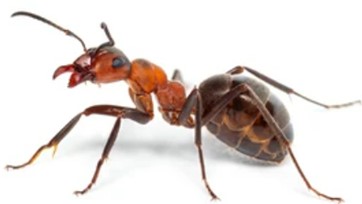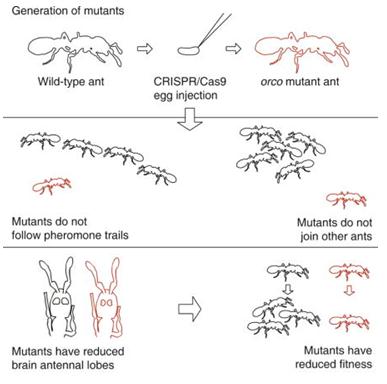
Pheidole megacephala is an insect of the family Formicidae in the order Hymenoptera. Ants are the most common insects on earth, with a wide variety and the largest number of insects. There are more than 11,700 species known in the world, and there are 21 subfamilies and 283 genera. Ants have a very long lifespan. Workers can live for a few weeks to 3-10 years, and queens can live for several years or even ten years. An ant nest can grow for several years or even a dozen years in one place. Ants can live in any place with their living conditions, and are the creatures with the strongest ability to resist natural disasters in the world, and are polymorphic social insects.
Pheidole megacephala feeds on dead insects, small invertebrates and honeydew excreted by insects such as aphids, soft scale insects, mealybugs, whiteflies and planthoppers. Pheidole megacephala are a threat to biodiversity through the displacement of native invertebrate fauna and is a pest of agriculture through harvesting seeds and harbouring insects on crops. They are also known to chew on irrigation and telephone cabling as well as electrical wires. Lifeasible provides gene editing services for pheidole megacephala with CRISPR/Cas9 to manipulate the social behavior of pheidole megacephala.
| Editable genes | Relevant traits exhibited after editing |
| ORCO |
|
 Figure 2. Corresponding phenotype after ORCO knockout. (Trible, W., et al., 2017)
Figure 2. Corresponding phenotype after ORCO knockout. (Trible, W., et al., 2017)
Lifeasible provides gene editing services for pheidole megacephala through the system of CRISPR/Cas9. Immediately prior to injection, Cas9 and gRNA were mixed in water to produce a solution with Cas9 and gRNA. We use the injection needles inject the mixture of Cas9 and gRNA to eggs. Preliminary injections were conducted using multiple batches of reagents and variable Cas9 and gRNA concentrations. After the incubation of eggs and rearing larval, we can get the obtains.
We cannot exclude the possibility that our injections gave rise to some level of off-target mutations, it is unlikely that the specific phenotypes in our service arise from off-target effects.
Lifeasible provides gene editing services for pheidole megacephala by CRISPR/Cas9 to affect the olfactory system, and interfere the social behavior of pheidole megacephala. If you are interested in our services or if you have any questions, please click online inquiry for more detailed information.